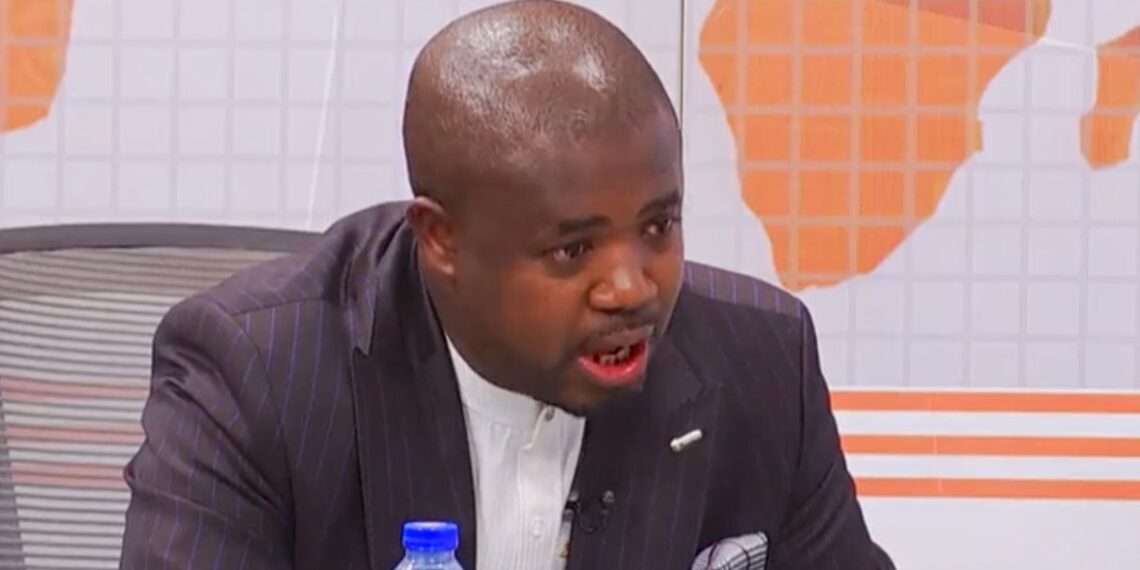In a recent discourse on the powers of the Supreme Court and the authority of the Speaker of Parliament, Godwin Edudzi Tameklo Esq. Director of the National Democratic Congress (NDC) Legal Directorate, has questioned the judiciary’s role in interpreting constitutional matters.
Tameklo addressed the extent to which the Supreme Court is bound by written arguments from legal representatives, as well as the evolving dynamics between the Attorney General, the Speaker of Parliament, and the constitutional rights of Members of Parliament.
His commentary underscored the complexities surrounding the Court’s discretion, the Attorney General’s role, and the significance of rulings on parliamentary balance.
The Supreme Court’s Independence in Constitutional Interpretation
“The courts have consistently stated that they are not bound by the written legal arguments of the parties.”
Godwin Edudzi Tameklo Esq. Director of the National Democratic Congress (NDC) Legal Directorate
He noted that while these submissions assist, they do not restrict the Court’s ability to interpret the Constitution independently.
The Court reserves the right to decide based on its understanding of constitutional principles, rather than being swayed by the arguments of either party.
According to Tameklo, this independence is fundamental to the judiciary’s mandate.
“As far as they are concerned, they have the power to interpret the Constitution.”
Godwin Edudzi Tameklo Esq. Director of the National Democratic Congress (NDC) Legal Directorate
He clarified that written arguments are merely supportive aids rather than binding directives for the Court’s decisions.
The Attorney General’s Position on Representation for the Speaker
In discussing recent court proceedings, Tameklo referenced the stance taken by Attorney General Godfred Yeboah Dame.
“The Attorney basically General sought either to create an impression before the court that Mr Thaddeus Sory does not have proper let me say, authority to represent the Speaker.”
Godwin Edudzi Tameklo Esq. Director of the National Democratic Congress (NDC) Legal Directorate
Tameklo further explained that the Attorney General implied that only his office should have represented the Speaker in constitutional matters, claiming that a request for sole-source approval to the Public Procurement Authority (PPA) was denied.
“The Attorney General, by coincidence or whatever, has been given what he wished for,” Tameklo commented, indicating that Godfred Dame had initially desired control over such representation. He questioned; “Where from the complaint? Why are we complaining?”
Exploring the Speaker’s Declaration and Parliamentary Balance

A significant part of Tameklo’s analysis centered on the Speaker of Parliament’s decision to declare certain parliamentary seats vacant.
The bone of contention from day one was the fact that the Speaker declared four seats vacant, thus the declaration impacted the composition of Parliament.
The move was the reason that shifted the NPP side into a minority, allowing the NDC to become the majority in Parliament.
Meanwhile, if the Speaker’s decision had been stayed as directed by the Court, the previous balance in Parliament would have been reinstated.
Tameklo also challenged whether the Speaker obstructed MPs affected by the ruling from returning to their seats. He questioned; “Did the Speaker prevent the four MPs from assuming their seats?”
His questions underscore that there was no evidence of direct interference by the Speaker in preventing members from exercising their duties.
Clarifying the Role of the Supreme Court and Speaker’s Actions
In his final remarks, Tameklo addressed the broader implications of the Supreme Court’s decision, affirming that the ruling did not delve into determining a parliamentary majority.
“Did the Supreme Court rule on the question of who is majority, or did the Supreme Court stay the decision that makes the NPP minority?”
Godwin Edudzi Tameklo Esq. Director of the National Democratic Congress (NDC) Legal Directorate
He queried, stressing that the Court’s intervention was limited in scope.
Tameklo further emphasized that the Speaker’s actions following the initial declaration did not go beyond informing Parliament of the four vacant seats.
“Beyond that day when the Speaker said those four seats [were Vacant] did the Speaker say, today, NDC is majority’ or ‘NPP is the minority?”
Godwin Edudzi Tameklo Esq. Director of the National Democratic Congress (NDC) Legal Directorate
Godwin Edudzi Tameklo’s analysis highlights the nuanced interplay between the Supreme Court’s role in constitutional interpretation, the authority of the Attorney General, and the Speaker of Parliament’s influence over parliamentary composition.
Through his statements, Tameklo shed light on the balance of power and procedural clarity, urging stakeholders to consider the constitutional roles and boundaries that govern the decisions of both the judiciary and Parliament.
READ ALSO; Celebrities Cautioned on Potential Pitfalls of Political Endorsements



















